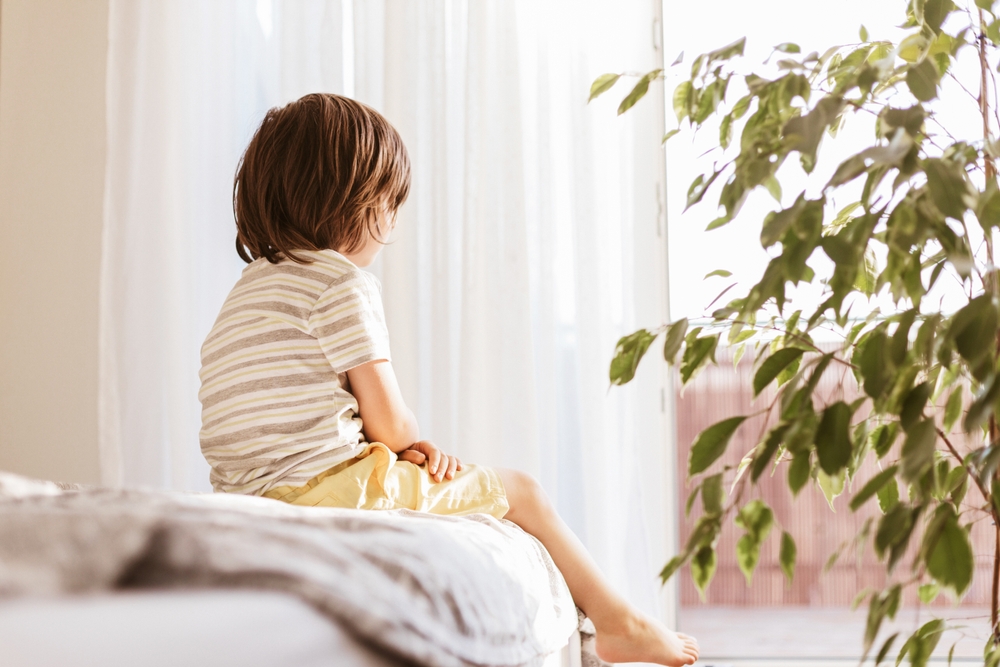Let’s learn how to stop bedwetting together! Dealing with your child’s bedwetting, also know as enuresis, can be exhausting for any parent. It’s not just about the disrupted sleep or the endless laundry. It’s the challenge of not finding the right solution, and seeing your child’s distress.
Enter Dr. Carla Yamashiro of Ecologic Dentistry in Bonney Lake, WA. She offers a unique perspective on how dental health could be the key to overcoming bedwetting. Let’s explore a groundbreaking approach that promises better nights ahead.
Download Our FREE Parents Guide!
What Causes Bedwetting
Bedwetting can feel like a mystery to frustrated parents. Yet, it’s often rooted in simple causes. Understanding these can be the first step toward finding a solution.
- Growth: Kids’ bladders may not keep pace with their body’s growth.
- Sleep: Some children sleep through the need to go.
- Stress: New or stressful events can trigger bedwetting.
- Health: On rare occasions, it points to health issues like UTIs or airway issues.
- Family History: A family history of bedwetting is a common factor.
- Airway Problems: Dr. Yamashiro points out that overlooked airway issues can also lead to bedwetting. It’s a less known cause that’s worth exploring.
Dr. Yamashiro emphasizes looking beyond the obvious. Sometimes, dental health issues, like misaligned teeth or airway issues can influence bedwetting. It’s a connection not many consider but can be a key piece of the puzzle.
What’s The Root Cause of Bedwetting?
Discovering the root cause of bedwetting often leads to an unexpected culprit: airway obstruction. Dr. Carla Yamashiro emphasizes that issues with the airway during sleep can prevent children from entering the deep, restful sleep stages necessary for bladder control. This means they remain in lighter sleep phases, where the likelihood of waking up to a full bladder is reduced.
This problem can be dental issues like crooked teeth or an underdeveloped jaw, affecting airflow and sleep quality. Addressing these airway concerns can dramatically improve not only bedwetting but also overall sleep quality. Dr. Yamashiro’s insights offer a new perspective for parents, focusing on dental health as a key to solving this puzzle.
Take Our FREE Sleep Quiz To See if Airway Is The Problem
What Is The Average Age to Stop Bedwetting?
The question of when children should stop bedwetting varies, but there’s a common timeline. Most children outgrow bedwetting by the age of 6 to 7. This is the age when they typically gain full bladder control at night.
However, it’s important to note that every child is unique. Some may stop as early as 5, while others might continue beyond 7. Stress, developmental differences, and family history can influence this timeline. If bedwetting persists past 7, it might be time to explore deeper causes, like airway issues. Remember, patience and understanding are key. Every child reaches this milestone in their own time.
Is Bed Wetting a Symptom of ADHD?
Bedwetting and ADHD are often linked, with children having ADHD more likely to experience bedwetting. This correlation suggests that ADHD may impact a child’s sensitivity to a full bladder while sleeping.
However, this doesn’t mean all children who wet the bed have ADHD, or vice versa. For those with ADHD who do face bedwetting challenges, a comprehensive approach helps. Dr. Yamashiro’s holistic view on health, including dental aspects, can provide key insights into managing both conditions effectively.
What Is The Most Effective Way To Stop Bedwetting?
The most effective way to stop bedwetting is a combination of patience, positive reinforcement, and sometimes, medical or professional intervention. Strategies include:
- Routine: Set a calming bedtime routine to signal the body it’s sleep time.
- Bladder Training: Encourage regular bathroom use to enhance bladder control.
- Moisture Alarms: Use alarms to help children become aware of nighttime bladder fullness.
- Fluid Management: Limit drinks before bed to reduce bedwetting risks.
- Vivos Treatment: This innovative approach addresses underlying problem.
Consulting professionals like Dr. Yamashiro can help identify the best approach, including exploring the Vivos treatment for airway-related bedwetting. This comprehensive method not only aims to stop bedwetting but also supports overall well-being and a happier life for children.
What Type of Doctor Do You See For Bedwetting?
When tackling bedwetting, the type of doctor you consult can make a significant difference. While pediatricians and urologists are common go-tos, an often-overlooked option is a dentist, particularly one with expertise in sleep-related issues, like Dr. Carla Yamashiro.
Dentists like Dr. Yamashiro can offer unique insights into the connection between bedwetting and oral health. They look at how structural issues in the mouth might impact breathing and, by extension, sleep quality. An obstructed airway, for example, can lead to disrupted sleep patterns, which in turn can contribute to bedwetting.
How can I stop bedwetting permanently?
To be able to stop bedwetting permanently involves addressing its root causes. For many, the solution lies beyond conventional methods, requiring a holistic approach to health. Here’s what you can do to get lasting results:
- Sleep Routine: Establish a consistent bedtime routine for better sleep.
- Dental Check-Up: See a dentist like Dr. Carla Yamashiro for an evaluation, focusing on sleep-related dental health.
- Vivos Treatment: Consider this oral appliance that opens up the airway by expanding dental arches, offering a holistic and lasting solution.
- Healthy Practices: Limit fluids before bed and encourage regular bathroom use.
A multi-faceted strategy, including innovative treatments like Vivos under expert guidance, can provide a permanent fix, enhancing sleep quality and boosting the child’s confidence.
The Vivos Treatment
The Vivos treatment offers a revolutionary approach to solving bedwetting by targeting its underlying cause: airway restrictions. Here’s how it works:
- Non-Invasive: Utilizes a custom-fitted oral appliance, worn at night, to gently expand the dental arches.
- Addresses Root Cause: Aims directly at improving airway flow, promoting better breathing and deeper sleep.
- Quick Results: Many children see improvements in bedwetting within days to weeks of starting treatment.
- Holistic Solution: Championed by experts like Dr. Yamashiro, it focuses on enhancing overall health, not just stopping bedwetting.
- Long-Term Benefits: Beyond bedwetting, it improves sleep quality, daytime alertness, and school performance, boosting the child’s confidence.
The Vivos treatment is more than a remedy; it’s a pathway to a healthier, more confident life for children facing bedwetting challenges.
Transform Your Nights: Discover the Secret to Ending Bedwetting for Good
Understanding and tackling bedwetting requires patience, empathy, and the right strategies. By focusing on underlying causes like airway restrictions and adopting holistic treatments such as the Vivos method, parents can find effective, lasting solutions. Dr. Carla Yamashiro and her team at Ecologic Dentistry in Bonney Lake, WA, are at the forefront of this approach, offering hope and help to families struggling with bedwetting.
If you’re ready to explore how the Vivos treatment can benefit your child, or if you’re seeking more natural ways to stop bedwetting, we’re here to guide you. Schedule an appointment with Dr. Yamashiro to start your journey toward restful nights, or download our free guide on how to stop bedwetting naturally. Together, we can turn those sleepless nights into peaceful ones, empowering your child towards a happier, more confident life.





